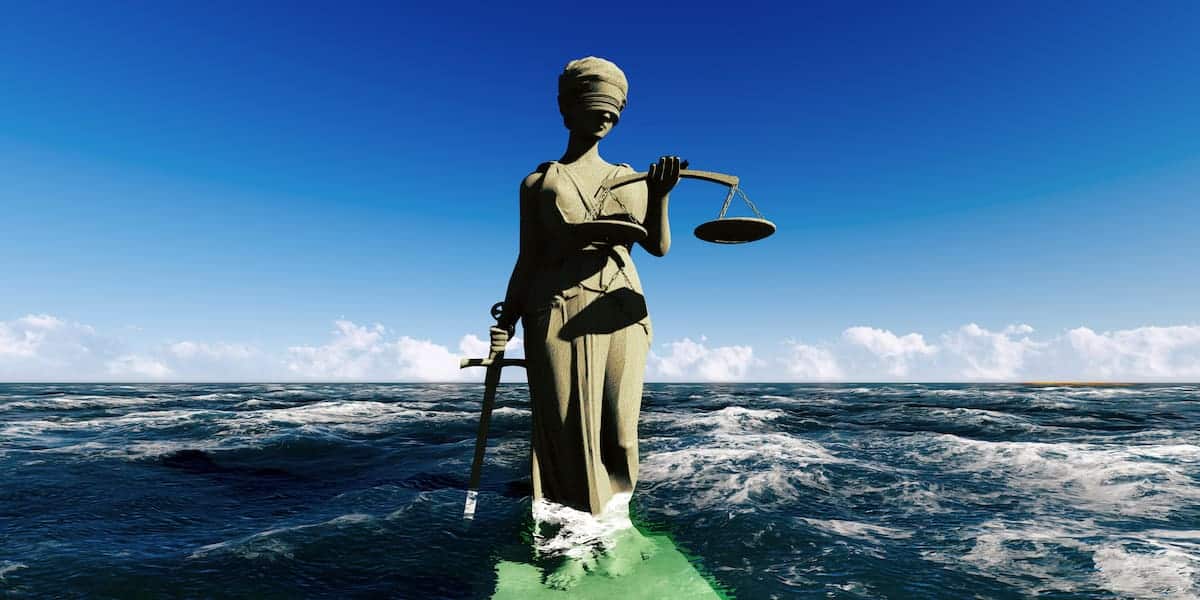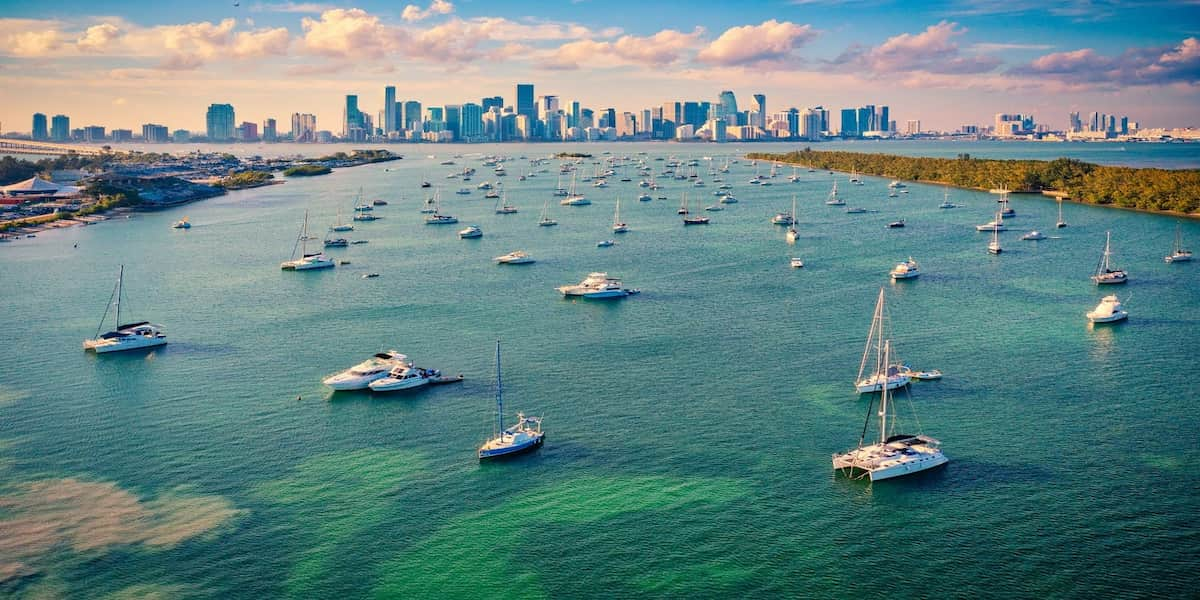
Florida’s beautiful coastlines and sunny weather make it a top destination for boating enthusiasts. Whether you’re an experienced sailor or a newcomer, understanding Florida boating laws is essential for a safe and enjoyable experience on the water. This guide outlines the key regulations every boater should be aware of, referencing specific Florida Statutes to provide clarity and ensure compliance.
Why Understanding Florida Boating Laws Is Important
With over one million registered vessels, Florida is often called the “Boating Capital of the World.” This popularity brings a responsibility to adhere to state laws designed to protect both boaters and the environment. Non-compliance can lead to fines, legal issues, and preventable accidents. Staying informed about these laws helps safeguard your boating experience and the well-being of others.
Boater Safety Education and Licensing
According to Florida Statute 327.395, individuals born on or after January 1, 1988, must complete a state-approved boating safety course to operate a motorized vessel of 10 horsepower or greater. Upon completion, boaters receive a Boating Safety Education Identification Card, which must be carried while operating the vessel. This card is not a license but is legally required for younger operators. Rental companies may also require proof of course completion. Completing this course is crucial for avoiding fines and ensuring safety on the water.

Florida Boating Rules You Need to Know
Adhering to Florida boating rules is not just about avoiding fines—it’s crucial for keeping everyone safe on the water. Let’s break down the most important rules boaters need to follow and answer common questions you may have.
1. Navigational Rules
Florida abides by the U.S. Coast Guard’s navigational rules, as outlined in Florida Statute 327.33. These rules are in place to prevent collisions and ensure the safety of all waterway users.
Key Navigational Rules:
- Right-of-Way:
- Powerboats must yield to vessels with limited maneuverability, such as sailboats and large commercial ships.
- When two boats are crossing paths, the boat on the right (the starboard side) has the right-of-way.
- Overtaking Another Vessel: If you’re overtaking another boat, pass on the side that the other boat is not turning towards, while maintaining a safe distance.
- Navigation Lights:
- Between sunset and sunrise, boats must use the correct navigation lights to avoid collisions.
- Red and green sidelights and a white stern light are typically required on most vessels.
- Sound Signals: Use a horn or whistle to communicate intentions, especially in crowded or narrow channels.
Common Question:
What happens if I don’t follow these navigational rules?
Not following these rules can lead to accidents, hefty fines, or even criminal charges if someone is hurt. It’s essential to understand these basics before hitting the water.
2. Speed Limits and No-Wake Zones
Under Florida Statute 327.46, speed limits and no-wake zones are strictly enforced to protect both people and wildlife.
What is a No-Wake Zone?
- A no-wake zone means your boat should travel at the slowest speed possible while still maintaining control. This helps prevent large waves that can harm shorelines, damage docks, or endanger wildlife.
Speed Limit Rules:
- Manatee Protection Zones: Certain areas, especially near estuaries and rivers, are marked to protect manatees. Boaters must reduce speed in these zones.
- Residential Areas: Speed limits are also enforced near residential areas to reduce noise and ensure safety for swimmers and small watercraft.
Common Question: What are the consequences of speeding in these zones?
Violating speed limits can result in fines starting at $250. If your speeding leads to damage or injury, you could face criminal charges.
3. Alcohol and Boating (BUI)
Operating a boat while under the influence of alcohol is taken seriously in Florida. Under Florida Statute 327.35, the blood alcohol concentration (BAC) limit for boaters is 0.08%—the same as driving a car.
Key Points to Remember:
- BUI Penalties:
- A first offense can lead to a fine of up to $1,000, potential jail time, and a suspension of your boating privileges.
- Subsequent offenses carry even harsher penalties, including higher fines, longer jail time, and permanent loss of boating privileges.
- Sobriety Tests: Law enforcement can stop your vessel and conduct sobriety tests if they suspect you are under the influence.
Common Question: Can I drink alcohol if I’m a passenger?
Yes, passengers can drink, but the boat operator should stay sober to avoid BUI charges.

Required Safety Equipment on Boats
Florida requires all boats to have specific safety equipment on board, as stated in Florida Statute 327.50. Having the proper equipment can save lives in emergencies.
Essential Safety Gear:
- Life Jackets:
- There must be one U.S. Coast Guard-approved life jacket per person on board.
- Children under six years old must wear a life jacket at all times on vessels under 26 feet in length.
- Fire Extinguishers:
- Boats with enclosed compartments must have a working fire extinguisher.
- Visual Distress Signals:
- Coastal boats must carry visual distress signals, such as flares.
- Sound-Producing Devices:
- A horn or whistle is necessary for signaling other vessels to avoid collisions.
Common Question: What happens if I’m missing required equipment?
You could face fines, and law enforcement may prevent you from operating your boat until you comply.
Protecting Florida’s Environment and Wildlife
Florida’s waterways are home to diverse marine life. Boaters must follow laws to protect these fragile ecosystems.
- Manatee Protection Zones (Florida Statute 379.2431):
- Slow down in these zones to avoid harming manatees, which are often found near the surface of the water.
- Marine Sanitation Devices (Florida Statute 327.53):
- It’s illegal to discharge untreated sewage into Florida waters. Ensure your boat has an approved sanitation device.
- Fishing Regulations:
- Florida has specific rules about the types, sizes, and amounts of fish you can catch. Check local guidelines before fishing to avoid fines.
Common Question: Can I anchor anywhere I want?
No, some areas restrict anchoring to protect marine habitats. Always check local ordinances before dropping anchor.
Rules for Personal Watercraft (PWCs) Like Jet Skis
Personal watercraft, such as Jet Skis, are popular in Florida, but they have specific rules under Florida Statute 327.39.
Key Regulations:
- Minimum Age Requirement:
- Operators must be at least 14 years old. Renters must be at least 18 years old.
- Life Jackets:
- All operators and passengers must wear life jackets.
- Restricted Operating Hours:
- PWCs cannot be operated between sunset and sunrise, even if they have navigation lights.
Common Question: What are the penalties for breaking these rules?
Fines start at $50, but they can increase if your actions lead to accidents or injuries.
Commonly Overlooked Boating Laws
There are several regulations that boaters often overlook:
- Anchoring and Mooring (Florida Statute 327.44):
- Certain areas restrict anchoring to protect seagrass beds and other marine habitats.
- Noise Limits (Florida Statute 327.65):
- Boats must adhere to noise limits, especially near residential areas. Excessive noise can lead to fines.
- Boat Registration (Florida Statute 328.48):
- All boats must have current registration and display registration numbers clearly.
Common Question: What if I don’t register my boat?
Failure to properly register your vessel can result in fines up to $500 and possible impoundment of your boat.
Penalties for Violating Florida Boating Laws
Florida takes boating safety seriously, and breaking these laws can have severe consequences. The state enforces strict penalties to ensure that boaters operate responsibly and protect both themselves and others on the water. Let’s break down the types of penalties you might face if you violate Florida boating laws, as well as the specific statutes that outline these penalties.
What Are the Penalties for Boating Violations?
The penalties for breaking Florida boating laws vary depending on the seriousness of the offense. They can range from fines to criminal charges, and in some cases, even jail time. Here’s what you need to know:
- Fines: Depending on the violation, fines can range from $50 to over $1,000.
- Mandatory Safety Courses: For certain offenses, you may be required to take a boating safety course to regain your boating privileges.
- License Suspension: Serious offenses, especially those involving alcohol or reckless behavior, can result in the suspension of your boating license.
- Jail Time: In extreme cases, such as repeat offenses or accidents that cause injury, you could face criminal charges and jail time.
Understanding Florida Statute 327.33: Reckless Operation of a Vessel
Florida Statute 327.33 addresses the reckless operation of boats. Reckless boating is defined as operating a vessel in a way that disregards the safety of others or property.
- First Offense: A first-time offender can be fined up to $1,000.
- Repeat Offenses: If you are caught operating recklessly again, the fines increase significantly and may also include the suspension of your boating privileges.
- Examples of Reckless Operation:
- Speeding through a no-wake zone
- Weaving in and out of traffic on busy waterways
- Performing dangerous stunts near other boats or swimmers
What Is Considered Reckless Boating?
Reckless boating includes actions that endanger people, property, or wildlife. Some common examples are:
- Speeding in restricted areas, such as near docks, marinas, or swimming zones.
- Failing to yield to other vessels, especially those with limited maneuverability like sailboats or larger ships.
- Operating too closely to other boats, leading to potential collisions.
- Ignoring navigational rules, which can cause accidents.
If you’re found guilty of reckless boating, you may also face lawsuits if someone is injured due to your actions. This is why it’s crucial to always follow Florida’s boating laws and practice safe boating habits.
Florida Statute 327.35: Boating Under the Influence (BUI)
Just like driving under the influence (DUI) on the road, boating under the influence (BUI) is illegal in Florida. According to Florida Statute 327.35, operating a boat with a blood alcohol concentration (BAC) of 0.08% or higher is prohibited.
- First Offense Penalties:
- Fines ranging from $500 to $1,000.
- Up to 6 months in jail.
- Possible completion of a boating safety course.
- Second Offense:
- Fines between $1,000 to $2,000.
- Up to 9 months in jail.
- Longer license suspension or mandatory alcohol treatment programs.
- Third Offense (Within 10 years):
- Considered a felony.
- Fines up to $5,000.
- Up to 5 years in prison.
- Permanent loss of boating privileges.
What happens if you refuse a breath test? Refusing to take a breathalyzer test when suspected of BUI can result in automatic fines and a one-year suspension of your boating license. This is similar to the laws for DUI on the road.
What Are the Penalties for Not Following Safety Equipment Laws?
Florida Statute 327.50 outlines the requirement for safety equipment, such as life jackets, fire extinguishers, and visual distress signals. Violations can lead to:
- Fines: Typically between $50 to $100 for each missing or non-compliant safety item.
- Warnings: First-time violators may receive a warning if the infraction is minor, but repeated violations can result in more severe penalties.
What safety equipment is required?
- A life jacket for each person on board.
- A working fire extinguisher for boats with enclosed compartments.
- Sound devices like horns or whistles.
- Flares or other distress signals if operating in coastal waters.
Failing to carry the necessary safety gear can not only result in fines but also put you and your passengers at risk in case of an emergency.
Consequences of Violating Environmental Laws
Florida’s waters are home to a wide variety of marine life, including endangered species like manatees. The state enforces strict regulations to protect its environment.
- Florida Statute 379.2431: Protects manatees by creating no-wake zones in areas where they are commonly found. Violating these zones can result in:
- Fines of up to $500 for the first offense.
- Higher fines or criminal charges for repeat offenses or causing harm to wildlife.
- Florida Statute 327.53: Prohibits the discharge of untreated sewage into state waters.
- Penalties include fines of up to $500 and mandatory repairs to ensure your boat meets sanitation standards.
Common Questions About Florida Boating Penalties
What if I don’t pay my boating fines? Failing to pay fines can lead to additional penalties, including increased fines, suspension of your boating license, and even court action.
Can my boat be seized if I repeatedly break boating laws?
In severe cases, especially if you are found guilty of reckless boating or BUI multiple times, your boat may be impounded.
What should I do if I am stopped by marine law enforcement?
- Stay calm and follow the officer’s instructions.
- Be prepared to show your Boating Safety Education Identification Card, boat registration, and safety equipment.
- If you’re suspected of BUI, you may be asked to take a breathalyzer test.
How to Avoid Penalties: Boating Best Practices
- Always carry the required safety gear.
- Complete a boating safety course, even if it’s not legally required for you.
- Avoid drinking alcohol if you plan to operate a boat.
- Respect speed limits and no-wake zones, especially near residential areas or wildlife zones.
- Regularly check that your boat registration is current and properly displayed.
By following these best practices and staying informed about Florida boating laws, you can enjoy the state’s waters safely and avoid costly penalties. Boating responsibly not only keeps you out of trouble but also ensures that Florida’s beautiful waterways remain safe for everyone.
Stay Safe and Compliant on Florida Waters
Understanding and following Florida boating laws is key to ensuring a safe and enjoyable boating experience. Whether you’re a local or just visiting, staying informed about these regulations will help protect you, your passengers, and Florida’s beautiful waters.
Need help with a boating-related legal issue? Contact William W. Price P.A. today. Our team of experienced attorneys is ready to guide you through any legal challenges you might face on the water. Let us help you navigate Florida’s complex legal waters with confidence.

